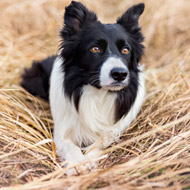Dogs accompanied Neolithic farmers into Europe - study

Dogs travelled with humans on their journey to Europe during the Neolithic period.
French researchers have found evidence of dogs travelling with early farmers from the Near East to Europe during the Neolithic expansion.
It was already understood that humans introduced several species of plants and animals to Europe. But a study published in Biology Letters shows that dogs were also ‘an integral part of the Neolithic farming package.’
In the study, researchers analysed DNA from the ancient remains of 99 European and Near Eastern dogs to see if farmers brought dogs with them, or adopted European dogs after they arrived.
They discovered that dogs associated with farmers in southeastern parts of Europe possessed a mitochondrial lineage found in dogs from the Near East, but not in dogs that originated from Europe.
"Our study shows that dogs and humans have an intertwined story - dogs followed humans during this migration across Europe," lead researcher Dr Morgane Ollivier told the BBC. "We show in this paper that dogs and humans were already really connected."
Farming first began in the Middle East in an area known as The Fertile Crescent. Around 9,000 years ago, some of the farmers moved into Europe accompanied by sheep, goats, pigs, cows, and cultigens like wheat and barley.
The researchers said the lineage of these ‘farmer dogs’ got diluted when they reached the Western margins of Europe and bred with the local population.



 RCVS Knowledge has welcomed Professor Peter Cockcroft as editor-in-chief for Veterinary Evidence.
RCVS Knowledge has welcomed Professor Peter Cockcroft as editor-in-chief for Veterinary Evidence.